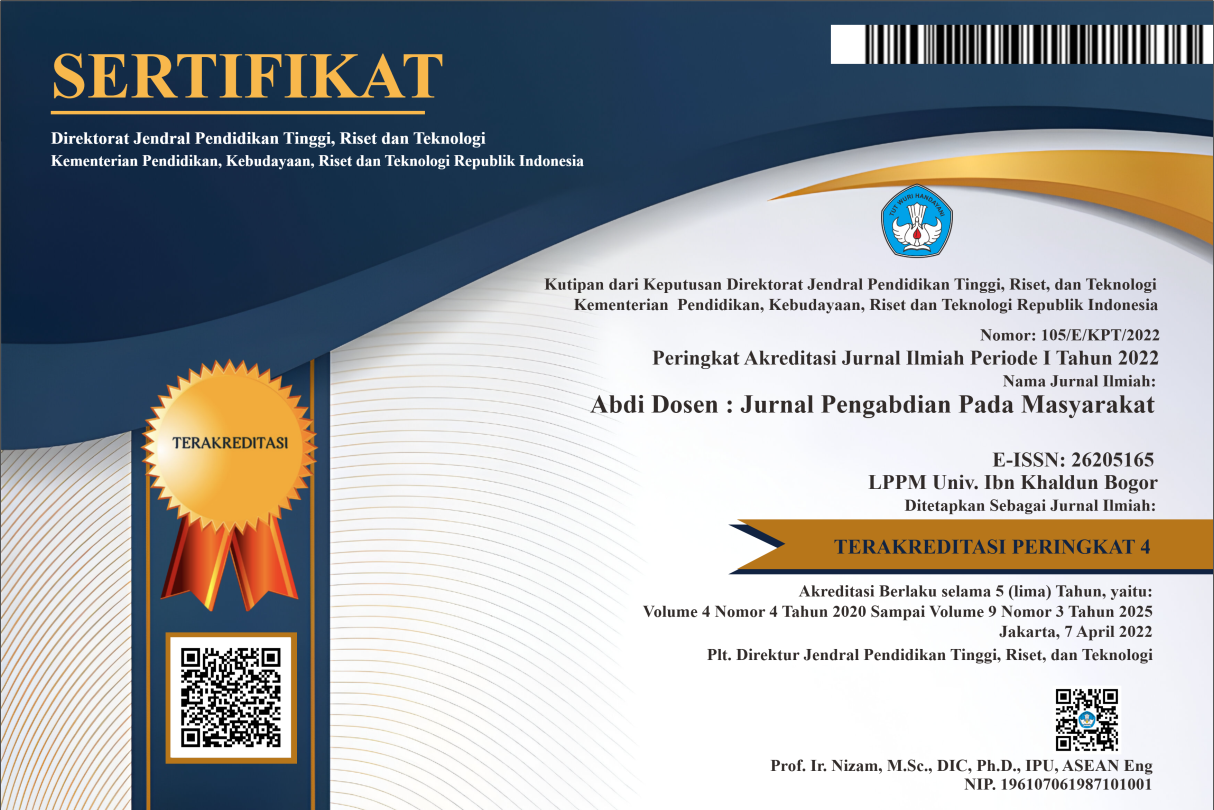STRENGTHENING THE CAPACITY OF MSMES IN SUKABAKTI VILLAGE, TANGERANG THROUGH PRODUCTION MANAGEMENT ASSISTANCE, FINANCE, DIGITAL MARKETING, AND LEGALITY
Abstract
Micro, Small, and Medium Enterprises (MSMEs) a significant role in Indonesia’s economy, including the local food sector such as household-scale tempeh industries. However, tempeh MSMEs in Sukabakti Village, Curug District, Tangerang, face several challenges such as limited production technology, low sanitation standards, lack of proper financial records, and marketing that relies only on traditional markets. This community service program aimed to strengthen MSME capacity through training on product diversification, production hygiene and sanitation, basic financial management, and digital marketing. The method applied was participatory action research (PAR), actively involving partners in each stage. The results show an average production increase of 15–20% per day, a reduction of defective products to 7%, adoption of financial recording by most partners, five MSMEs successfully obtaining business legality (NIB and PIRT), and 60% of partners starting to use social media and online marketplaces for marketing. Therefore, the program has proven effective in enhancing the competitiveness and sustainability of tempeh MSMEs, while also contributing to the achievement of the Sustainable Development Goals (SDGs).
Copyright (c) 2025 Moses L. P. Hutabarat, Apriani Simatupang, Wiputra Cendana, Claudia Cindy Hariyanto, Firman Ebenejer Zebua

This work is licensed under a Creative Commons Attribution-NonCommercial 4.0 International License.






















